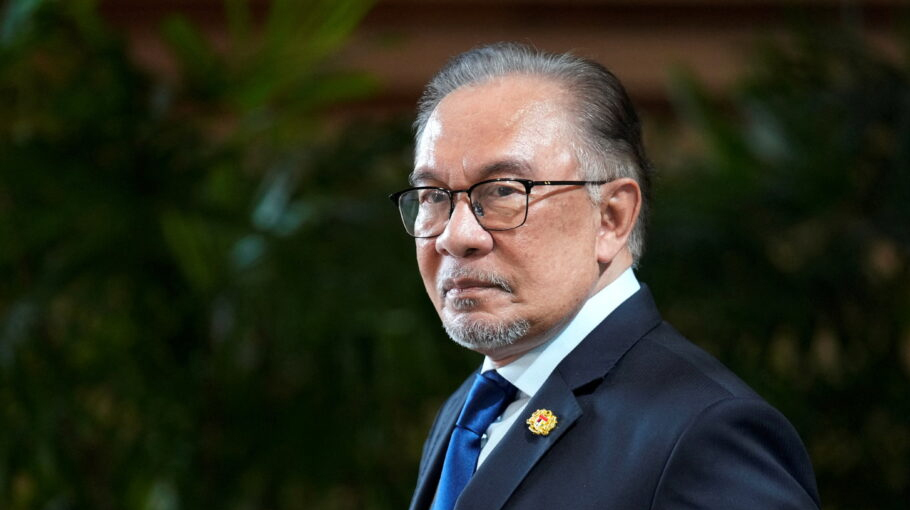Malaysia mustn’t waste its moment of regional leadership

Though on paper they have what looks like an unassailable political position, with a strong parliamentary majority and an economy in good health, Malaysian Prime Minister Anwar Ibrahim and his ‘Madani’ unity coalition government behave with the caution of a team anxious that it might lose power at any moment.
The question as far as Anwar’s political prospects are concerned is not whether he can see out a full term — something that did not seem assured even a year ago — but whether he will be a multi-term prime minister.
The flip side of the government’s apparent durability is that an institutional reform agenda is being implemented in a somewhat piecemeal fashion. In a recent stock take of Anwar’s record, Weiss observes that the ‘difficult compromises’ involved in the maintenance of a ruling coalition marked by diverse ideologies and parochial concerns ‘have increasingly detached’ Anwar’s Pakatan Harapan party coalition ‘from its oppositional history and reformist premises’. The unity government, which includes the rump of the once-mighty Barisan Nasional machine and an array of local parties from the Borneo states of Sabah and Sarawak, ‘may well stay in power, but seems satisfied to do little more than that’.
Because of his government’s caution in going out on a policy limb on the home front, Anwar’s recent boldness in foreign affairs has struck some as a surprise. Over the course of 2024, the Prime Minister has made an anti-Western rhetorical shift with a worry that it presages a more substantial alignment of policies towards Chinese interests.
The picture is more complicated, as Tricia Yeoh emphasises in this week’s lead article. She stresses that Anwar’s recent anti-Western posture lies downstream of domestic realities that incentivise picking up longstanding elements of Malaysian foreign policy thinking — such as advocacy for the Palestinian cause and even-handedness in management of its relationships with China and the West — and carrying them to the point of excess.
As Yeoh writes, in making advocacy for Palestine a signature foreign policy issue ‘Anwar is likely responding to the increasing political competition from his coalition government’s rival, the National Alliance, comprised of two conservative Malay-Muslim parties’. Condemning Israel and the West’s support for it — while parading his longstanding personal ties to Hamas leaders — is a cost-free way of burnishing Islamic bona fides among the Malay-Muslim voters who mostly backed his opponents in the 2022 elections. Likewise with his warmth towards China, which, as Yeoh says, ‘reflects widespread domestic sentiment’ that sees Beijing as a source of economic opportunity.
But it is Anwar’s recent enthusiasm for joining BRICS that, if consummated, raises questions about Malaysia’s commitment to non-alignment and the critical importance of ASEAN in its foreign policy.
There is an issue of mixed messages here. Anwar made an important and persuasive endorsement of ASEAN centrality and ASEAN’s value as a platform for building a rules-based multipolar order in Asia in a speech in Canberra in March 2024. BRICS, however, is a plain-as-day attempt on China’s part to enlist the Global South in the kind of Cold War bloc-building that, insofar as it extends to our region, undermines the whole spirit of ASEAN centrality.
This is something that Indonesia surely recognised when it passed on the opportunity to join the grouping recently. Anwar is doing his country and the region a disservice by letting his impatience with Western cant about the ‘rules-based order’ lead him on tangents that distract from the opportunities Malaysia has to focus its diplomatic energies on ASEAN, where its national interests, ability to add value and diplomatic leverage really lie. In an article for EAF this week, Mohd Faiz Abdullah, Chairman of the Institute of Strategic and International Studies in Kuala Lumpur, makes clear that without initiative in ASEAN, Malaysia’s global strategy would be problematic.
Under Anwar, Yeoh writes, ‘Malaysia’s “grand strategy” thus appears quite opaque. An articulation of strategic priorities is urgent but still absent’. The live question, as Malaysia prepares to take over from Laos as Chair of ASEAN in 2025, ‘is whether Malaysia’s leadership can engage a more constructive approach on strengthening ASEAN, eschewing a diplomacy that appears hooked on merely belittling the West’.
If Anwar is looking for an enduring foreign policy achievement, his government should prioritise corralling ASEAN towards concrete policy actions in 2025 in support of the vision the Prime Minister expressed so well in Canberra. In particular, there is an urgent need for political leaders to articulate a forward vision for how to maximise the Regional Comprehensive Economic Partnership (RCEP) as a platform for region-wide cooperation to defend economic openness and address the challenges of geoeconomic shifts, the energy transition and new threats to the multilateral trading system.
Just as Malaysia needs ASEAN, so does ASEAN and the region need Malaysian leadership at a pivotal juncture. There is great uncertainty about the Philippines’ approach to ASEAN as many in Manila perceive a solidarity deficit from fellow members amid the South China Sea crisis. Malaysia’s ability to lock in a multi-year policy action plan on priority issues in 2025 will go a long way to ensuring momentum is not lost in the Philippine chair year in 2026. Indonesia, meanwhile, will soon come under the leadership of Prabowo Subianto, a believer in Indonesia’s great-power destiny who might need reminding that Indonesia is not too big to care about ASEAN.
Anwar might be just the salesman the region needs to keep Indonesia under Prabowo engaged in the ASEAN-strengthening agenda from the get-go.
The EAF Editorial Board is located in the Crawford School of Public Policy, College of Asia and the Pacific, The Australian National University.
Source: East Asia Forum




